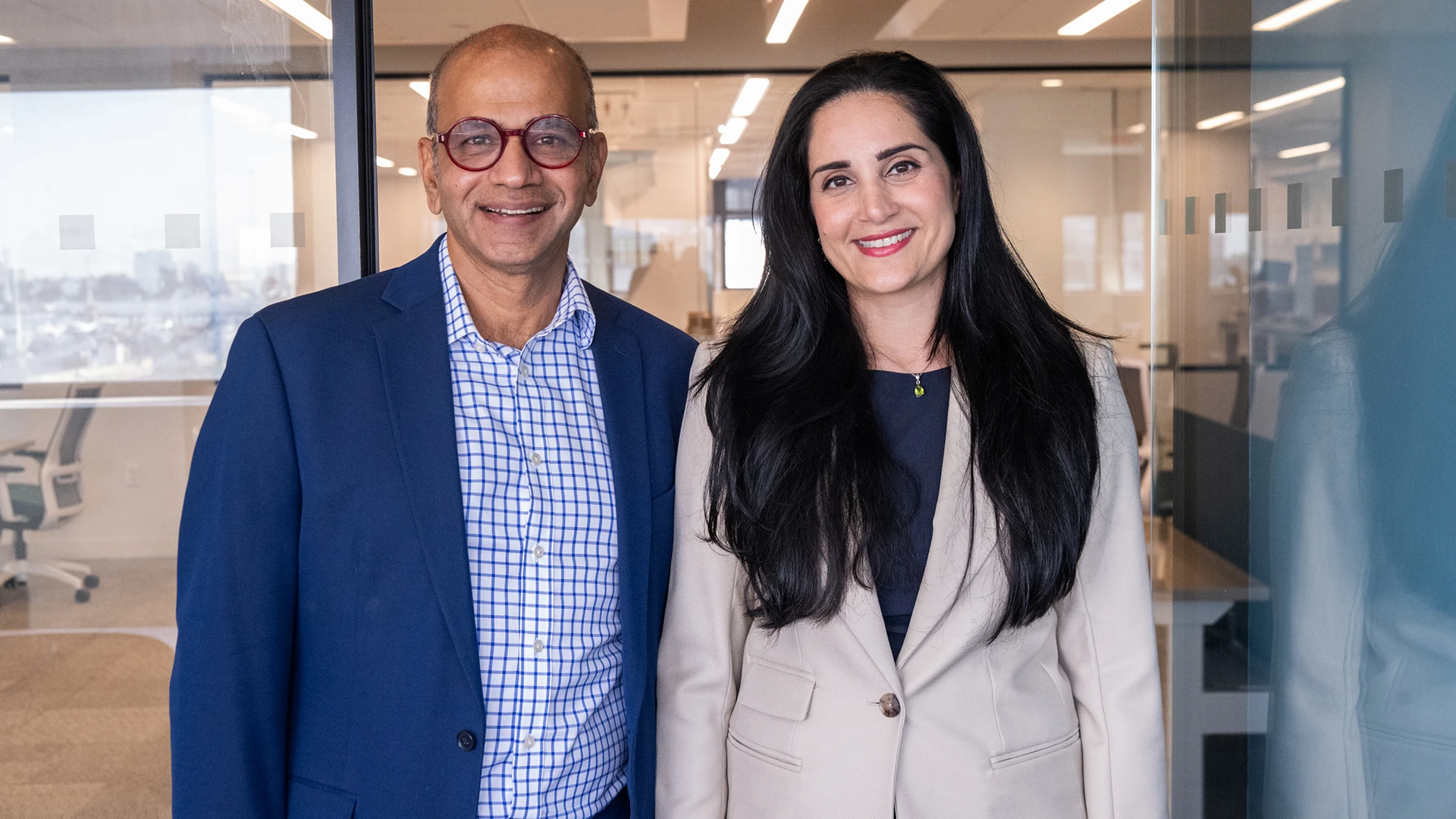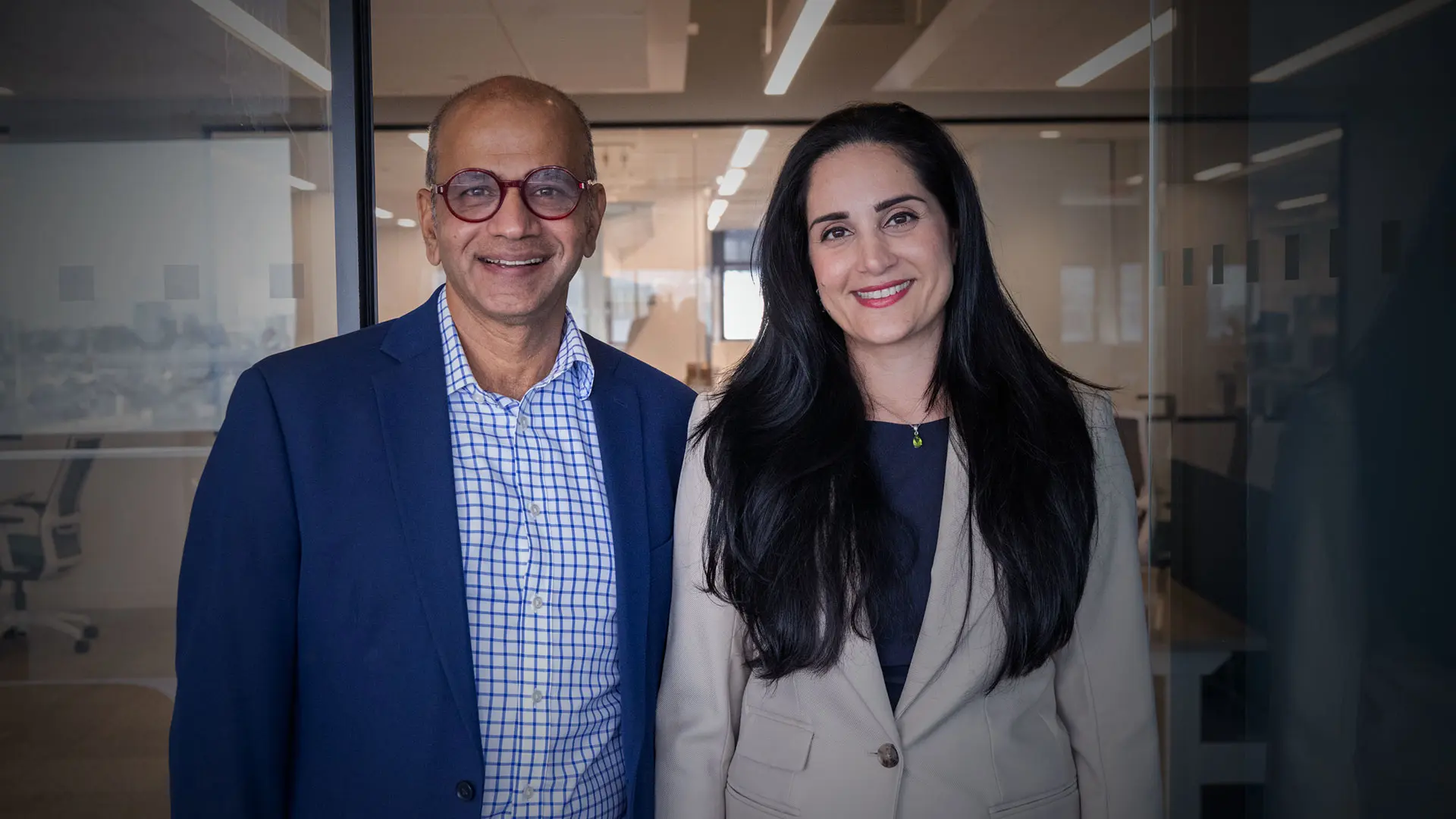Beyond its wide-ranging research capabilities, the Center for Engineering and Precision Medicine (CEPM) in New York City will be the educational hub of a new joint PhD program in Health Sciences Engineering being offered by RPI and the Icahn School of Medicine. The program will include engineering immersion, commercialization training, and clinical shadowing, enabling students to contribute to the next generation of precision diagnostics and therapeutics targeting cancer, Alzheimer’s disease, infectious diseases, women’s health, regenerative medicine, and much more.
“We’ve carefully structured the curriculum so it equips students with the specialized translational training needed to apply engineering principles and design concepts as they explore discoveries and innovations that could vastly impact human health,” says Priti Balchandani, PhD, Professor of Diagnostic, Molecular and Interventional Radiology, and Professor of Neuroscience, at the Icahn School of Medicine, and Co-Director of the CEPM. “There are very few places providing this kind of formal training today. In addition, we wanted to create an active hub where research faculty from Rensselaer could make critical connections on the clinical side, and Mount Sinai researchers could do the same on the engineering side.”

Deepak Vashishth, PhD, and Priti Balchandani, PhD
The Center, which opened in 2023, and the new PhD in Health Sciences Engineering program are the latest efforts in a partnership that was formed more than 10 years ago between Mount Sinai and RPI, an institution known worldwide for its engineering, technology, and science programs. To date, the CEPM collaboration has secured more than $80 million in shared research funding. The facility occupies 23,000 square feet of lab and support space on the ninth floor of the Hudson Research Center, a mixed-use hub for innovation nestled in New York City’s growing life sciences sector.
Research groups and faculty from both institutions, as well as established and start-up technology companies that will provide internships, are located at the facility and are expected to be a vital part of the training process for students enrolled in the joint PhD program. The overarching goal is to connect students with the resources they need to become leading life-science entrepreneurs, researchers, and medical professionals.
In the first year of the program, students will be immersed in engineering at RPI in Troy, New York, through coursework and research training that includes design thinking, introduced through process and product design and open-ended problem solving. The year will conclude with students clinical shadowing at the Mount Sinai Health System. In the second year, students will be trained in entrepreneurship and commercialization at the CEPM through unique, hands-on, industrial internships.

The Center for Engineering and Precision Medicine in New York City is the educational hub of the new PhD in Health Sciences Engineering program being offered by Rensselaer Polytechnic Institute and the Icahn School of Medicine at Mount Sinai.
Building a thriving community of scientists also drives the research side of the budding enterprise. “Our goal is to have investigators from Mount Sinai and RPI interacting on a daily basis as they drive advances in regenerative and reparative medicine, and in neuroengineering and immunoengineering,” says Dr. Balchandani. These breakthroughs could come in areas such as point-of-care devices and diagnostics, microphysiological platforms, robotic surgery, biomedical imaging, therapeutics biomanufacturing, and artificial intelligence (AI) and machine learning applied to biomedical data. For her contributions to research, education, and innovation in the field, Dr. Balchandani was recently named Mount Sinai Professor in Engineering Medicine.
Dr. Balchandani and her Co-Director, Deepak Vashishth, PhD, Yamada Corporation Chaired Professor, Department of Biomedical Engineering, RPI, and Adjunct Professor, Department of Orthopedics, at the Icahn School of Medicine, were actively involved in all aspects of launching the research and educational components of the CEPM, and are well aware of the vast potential this collaborative platform represents.
“We welcome this opportunity to partner with the Icahn School of Medicine and prepare the next generation of biomedical innovators who will engineer the future of medicine and bring new solutions to treat each patient as the individual they are,” says Dr. Vashishth.
As Director of the Advanced Neuroimaging Research Program and Associate Director of the BioMedical Engineering and Imaging Institute at Mount Sinai, Dr. Balchandani has successfully bridged—through her own research—the gap between advanced electrical engineering and medical imaging applications. Most notably, this has resulted in the development of MRI techniques to visualize detailed anatomy as well as vasculature, neuronal fiber tracts, and metabolic characteristics aimed at better understanding the effects of disease on the brain. She has applied this methodology to improve, for example, epilepsy treatment, guide skull base tumor surgery, and study the biological mechanisms underlying psychiatric illness.
With her own experience in mind—and with a robust curriculum she helped develop with Dr. Vashishth and faculty at both RPI and the Icahn School of Medicine—Dr. Balchandani and the CEPM team fundamentally aim to instill, from the start, a translational mindset in eager students and young scientists. “We’re immersing trainees in an environment that encourages innovation by making them constantly aware that they are designing and implementing solutions with a final goal in mind,” Dr. Balchandani says. “We believe that’s ultimately the key to transformative change in how health care is delivered and how certain diseases will be detected, treated, and managed.”
